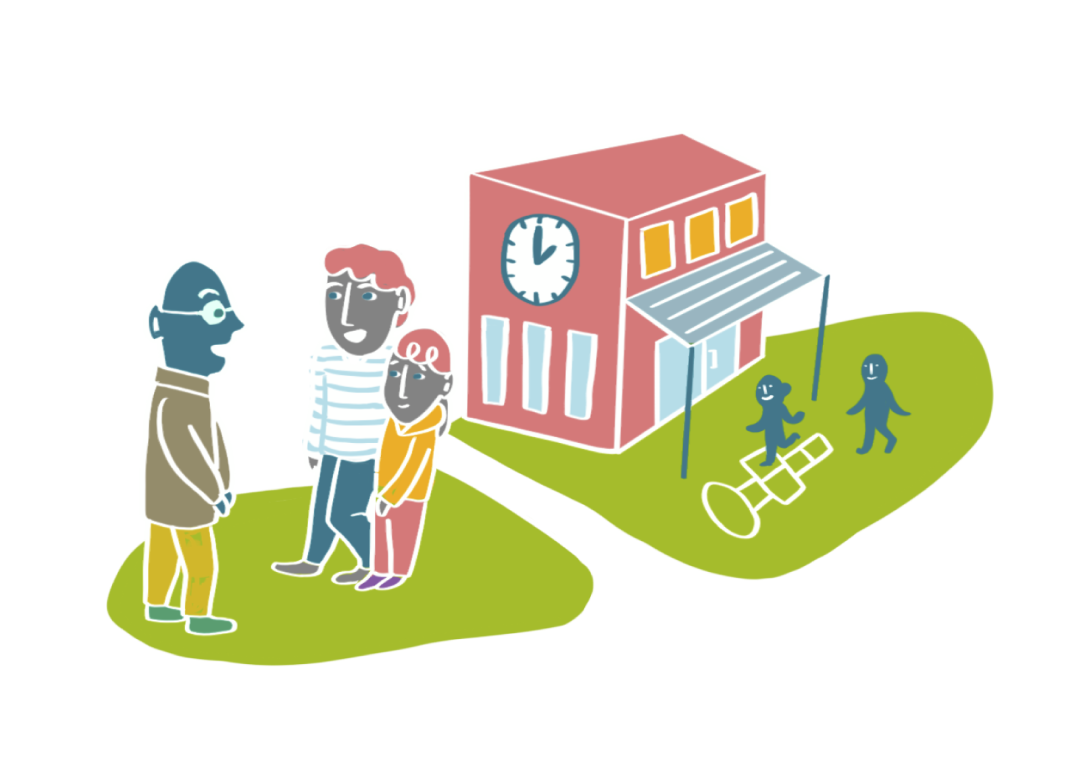School
All children who live permanently in Finland are required to complete the school syllabus, which means that every child either attends school or completes the required syllabus in another way. Children start school the year they turn seven. Compulsory education ends when the child reaches the age of 18 or has completed a secondary education.

Basic education encompasses primary school (years 1-6) and secondary school (years 7-9). After basic education, teenagers continue studying in general or vocational upper secondary education.
Basic and secondary education is free in Finland. In addition to teaching, books and other materials as well as school dinners are free. Children are offered Finnish as a second language classes in basic education.
Instructive preparation for basic education
Instructive preparation for basic education is for children whose Finnish language skills are not sufficient to study in a pre-primary or basic education group. The language skills are assessed by professionals, not the children’s parents. The instructive preparation for basic education focuses primarily on the Finnish language.
Morning and afternoon activities
Children can participate in these activities either before or after school. The activities are mainly intended for pupils in years one and two.
Cooperation between families and school
A working relationship and trust between families and school help children to learn and enjoy being at school. Trust is strengthened when parents and school staff meet often enough and get to know each other. Parents and teachers work together in contexts such as assessments and parent-teacher meetings. Messages are sent more regularly through an electronic platform (e.g. Wilma).
Parents should also be proactive. If they are concerned about something related to their child or the school, they need to discuss it with the teacher as soon as possible.
Support for learning and student welfare services
Children have the right to adequate support with matters related to learning and education. If a child has problems at school, parents should contact their child’s teacher or form teacher. If a teacher is worried about a child’s progress at school, they must contact the family to make plans for how to support the child.
Student welfare services offer help with learning and other challenges. A teacher can take the initiative if they notice that a pupil needs support, and children and young people can also contact the student welfare service directly. Contacting the student welfare service is voluntary and requires the guardian’s consent in some cases.
The student welfare service is run jointly by municipal departments of education and social and health services. The service promotes and supports children’s learning efforts as well as their physical and mental health.
In addition to the school health care system, i.e. the services of a nurse, regular medical examinations and dental care, schools also provide the services of school social workers and psychologists. School social workers provide guidance and support if a pupil is worried about low mood or has problems with family or friends. Psychologists offer support for mental health issues and are specialists in learning difficulties. If necessary, the school and student welfare staff can also work with family workers, a family centre and child welfare services.
Student welfare services that cover the entire community is beneficial for schools. They enhance the sense of security in the school environment and prevent bullying, violence and harassment.
Every school must have an anti-bullying plan in place to explain how bullying can be prevented and dealt with.
If a member of staff at school or in student welfare services is concerned that a child is not growing and developing as they should, the staff member can contact the social services in the town where the child lives, either with the child on their own, or with the child and their parents. However, if contact cannot be made together with the family or if there is an urgent need for protecting the child, the employee is obliged to file a child welfare notification. Read more about what happens after a child welfare notification has been filed on the page Becoming involved with social welfare services.
Useful links
- You can find basic information about education in Finland in eleven languages on the InfoFinland.fi website (www.Infofinland.fi)
- Vanhempainliitto has published guides in various languages for parents about going to school (www.vanhempainliitto.fi, page in Finnish)
- If you have problems with the Finnish language, you should enquire about the interpreting services provided by your municipality. Read more about interpreting services on the InfoFinland website.
